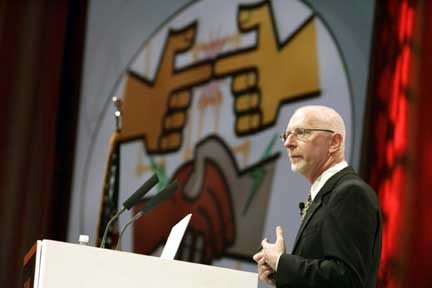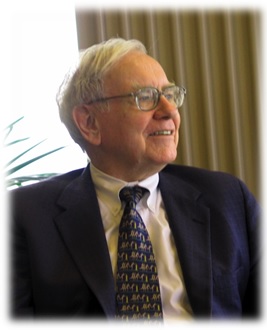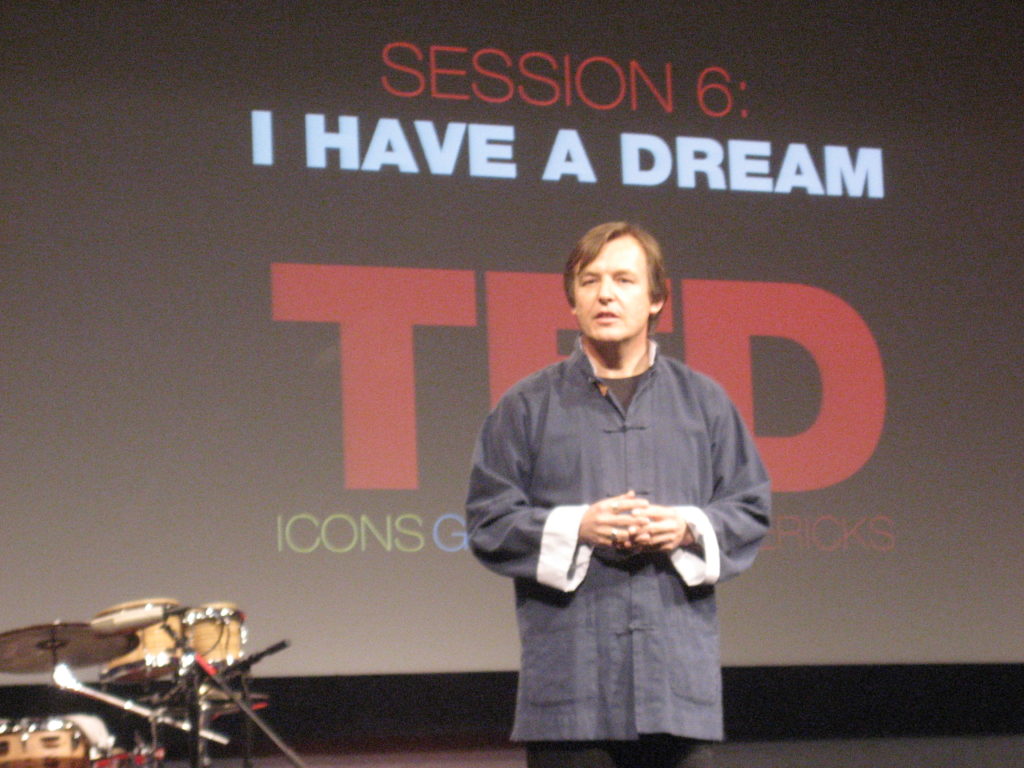 It’s noteworthy that a 90 year plus non-profit – Toastmasters – is experiencing a resurgence. According to a story in Fortune by Anne Fisher, Toastmasters boasts 300,000 members worldwide in more than 14,600 chapters across the globe. And at U.S. companies, managers are being urged to join in order to improve their proficiency at the fine art of being able to get up in front of others and persuade, sell, and entertain.
It’s noteworthy that a 90 year plus non-profit – Toastmasters – is experiencing a resurgence. According to a story in Fortune by Anne Fisher, Toastmasters boasts 300,000 members worldwide in more than 14,600 chapters across the globe. And at U.S. companies, managers are being urged to join in order to improve their proficiency at the fine art of being able to get up in front of others and persuade, sell, and entertain.
I do a great deal of public speaking, as you many of you know, and it’s a skill I have far from mastered. But it’s something I work on every day. From moderating focus groups to speaking in front of jocks and salespeople to being on the big stage at “The Radio Show,” mastering the art of getting up in front of a dozen people or 700 broadcasters is an acquired talent that takes time, practice, organization and discipline.
To illustrate that point, earlier this month, Toastmasters sponsored the 2016 World Championship of Public Speaking (yes, there is such a thing), featuring contestants from around the world. Here are the “greatest hits” from last year’s competition:
According to CNN.com’s John Blake, there are many lessons we can learn from Toastmasters that can be applied to everyday operations at our stations and our companies. I’ve taken their list, added a few items of my own, to sum up how radio can benefit from sharpening staff public speaking skills:
- One-to-one communications matters – As we continue to stare at our phones and mindlessly send out emails, texts, and snaps, learning how to connect face to face is an important skill. Charles Miller, a financial manager with Coca-Cola, puts it this way: “A text or an email is fine for sending a few facts, but to connect and collaborate on a deeper level, in-person conversation is really irreplaceable.”
- There’s power in the spoken word – I don’t have to explain this to anyone in radio. We know the importance of a well-turned phrase, a well-told joke, or a cleverly delivered bit can resonate, entertain, and enchant. Managers in any department can learn those same skills.
- Great storytelling requires practice – It’s not about giving a speech, it’s about telling a great story. And it requires studying the skills of
 others via resources like Toastmasters or TED Talks, as well as simply practicing and prepping relentlessly. And it takes time to get comfortable in front of others. Warren Buffett once said, “One of things you would want to be sure to do is, whether you like it or not, get very comfortable with public speaking. That’s an asset that will last you 50 or 60 years, and it’s a liability if you don’t like doing it.”
others via resources like Toastmasters or TED Talks, as well as simply practicing and prepping relentlessly. And it takes time to get comfortable in front of others. Warren Buffett once said, “One of things you would want to be sure to do is, whether you like it or not, get very comfortable with public speaking. That’s an asset that will last you 50 or 60 years, and it’s a liability if you don’t like doing it.” - There’s value in competing – The CNN.com story talks about how competition encourages public speakers to up their games and sharpen their public speaking skills. Air talent has the barometer of ratings, and salespeople have tangible evidence of their efforts. That’s why so many business people are joining Toastmasters.
- Learning the art of being inspirational – Studying the content at TED Talks or listening to “The Moth” often reveals that many stories are emotional in tone. The best stories move us, and get us to hear a perspective that may be different from our. Great storytelling is inspirational, and that’s what connects with consumers, customers, listeners, or clients. As we see year after year on our “Why Radio?” pyramid, it’s the emotional connections that truly power radio’s appeal.
- Brevity is bliss – At the World Championship of Public Speaking Competition, speeches are limited to 5-7 minutes. TED Talks are just 18
 minutes long. TED curator Chris Anderson (right) explains the length rule this way: “It’s the length of a coffee break. So you watch a great talk, and forward the link to 2-3 people. It can go viral very easily. The 18-minute length also works much like the way Twitter forces people to be disciplined in what they write. By forcing people who are used to going on for 45 minutes to bring it down to 18, you get them to really think about what they want to say…It has a clarifying effect. It brings discipline.” On the air, the PPM methodology has taught programmers and talent the art of communicating and entertaining in bite-size packages, all part of the art of great storytelling.
minutes long. TED curator Chris Anderson (right) explains the length rule this way: “It’s the length of a coffee break. So you watch a great talk, and forward the link to 2-3 people. It can go viral very easily. The 18-minute length also works much like the way Twitter forces people to be disciplined in what they write. By forcing people who are used to going on for 45 minutes to bring it down to 18, you get them to really think about what they want to say…It has a clarifying effect. It brings discipline.” On the air, the PPM methodology has taught programmers and talent the art of communicating and entertaining in bite-size packages, all part of the art of great storytelling. - Talk is good – boring talk is bad – In radio, we sometimes jump to the incorrect conclusion that listeners are repelled by talk. The truth is that great storytelling – think Howard Stern, Rush Limbaugh, Terry Gross, Phil Hendrie, Marc Maron, Tom Leykis, and other great “talkers” on the airwaves or the digital highway – is loved and appreciated by millions. It generates ratings and loyalty. On the other hand, inane, pointless, boring talk that isn’t prepped or well thought out is where DJs and shows get in trouble. The same holds true in any conference or boardroom.
Working on public speaking skills – whether you’re the traffic director, running the digital department, the LSM, or the afternoon guy – would be one of those career goals to put on your list for 2017. It is a discipline that will pay off in myriad ways throughout your career.
Keep talking.
Thanks to Mike Stern for the “inspiration.”
- How Radio Can Improve Its Digital Content Batting Average - January 3, 2025
- Is It Time For Radio Broadcasters To “Thelma & Louise” Over The Demographic Cliff? - January 2, 2025
- Some Good News About Radio? Yes! - January 1, 2025




Shared this with the sales staff. Great piece. Thanks Fred.
Many thanks, Jack. Hope they found it useful.